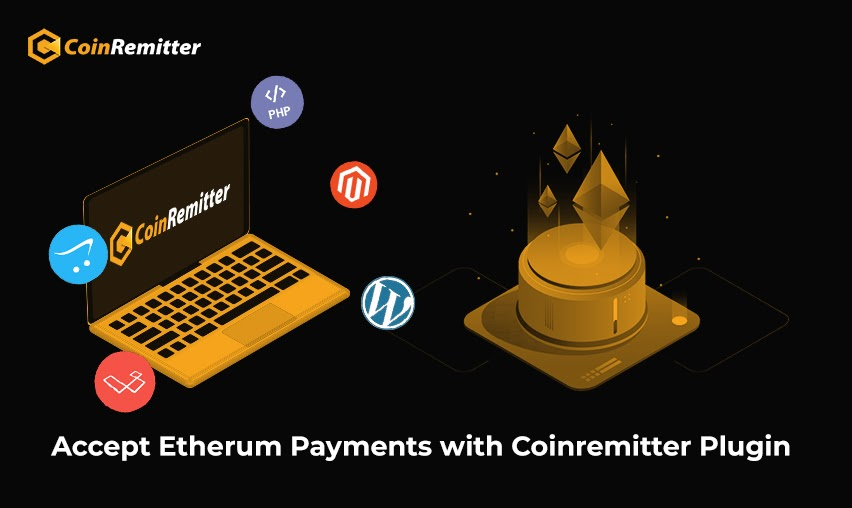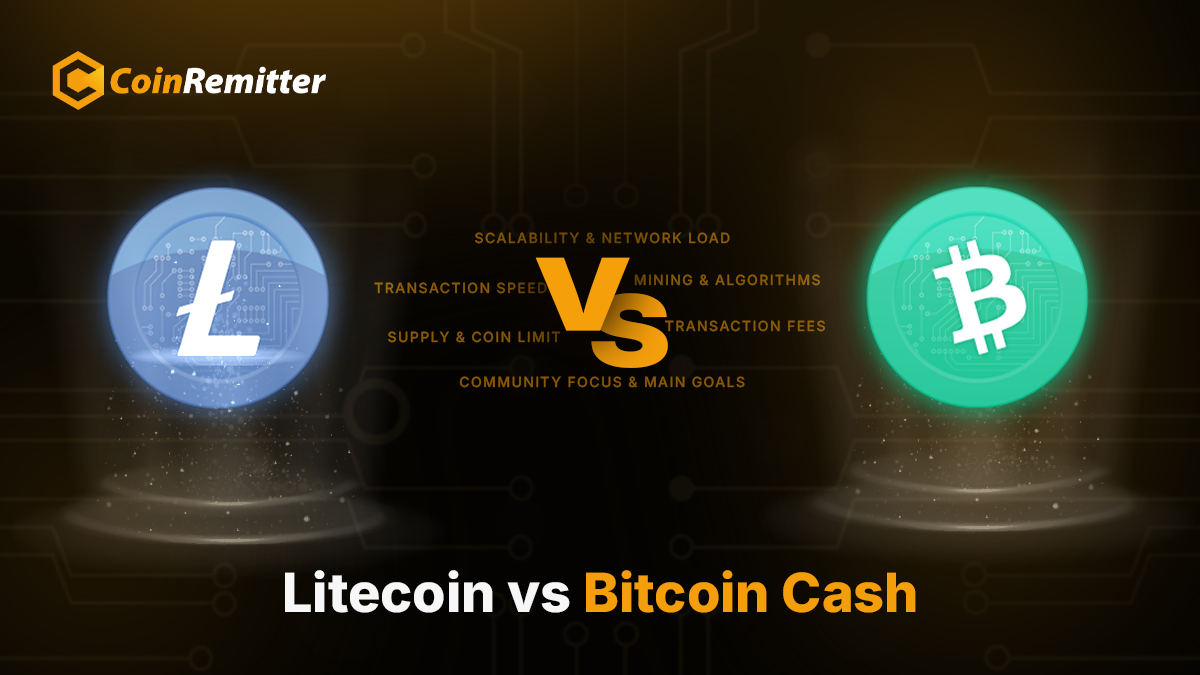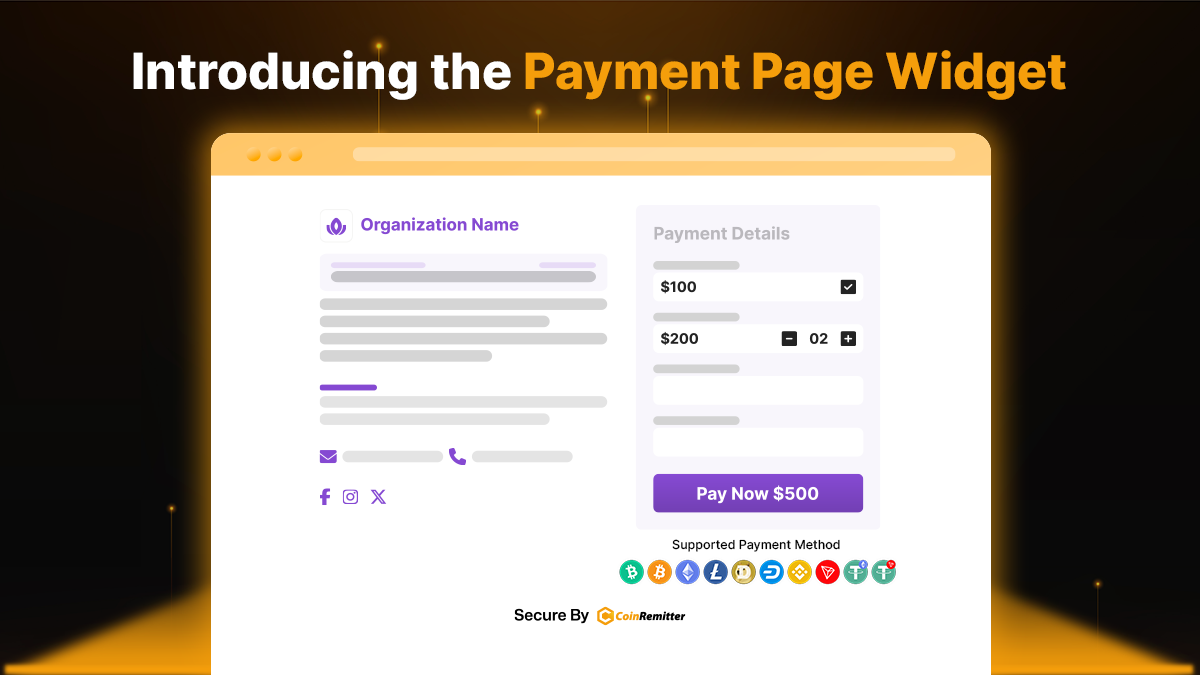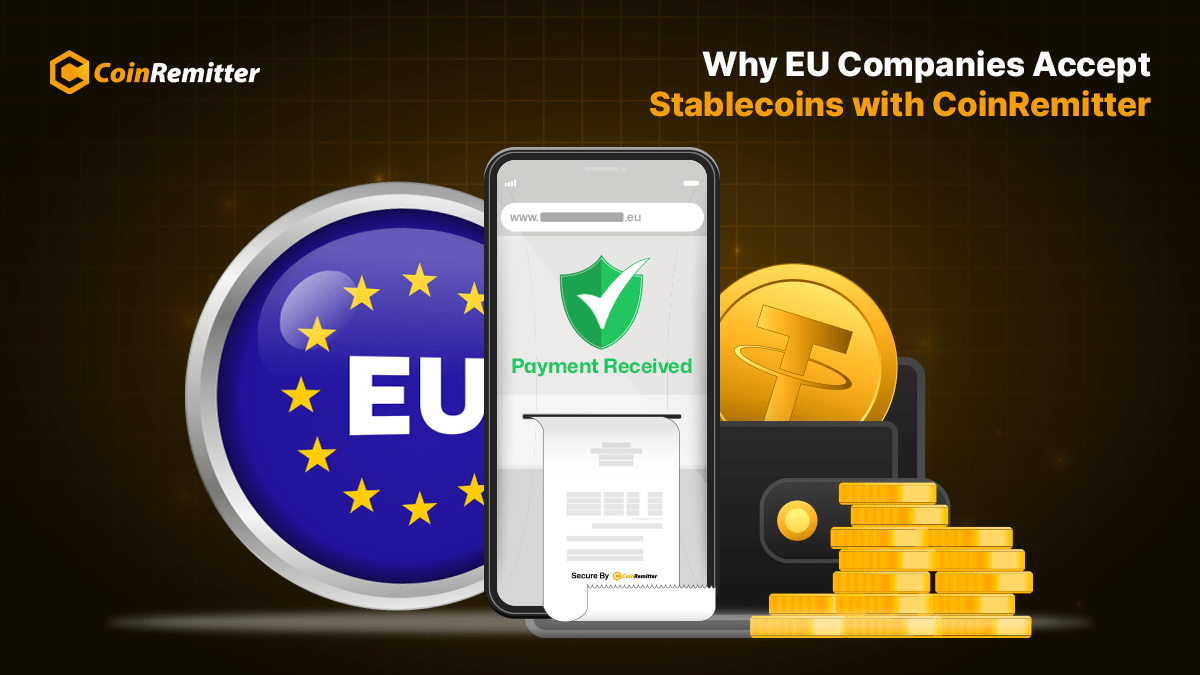A Complete Guide to Integrating Ethereum Payment Gateway on Your Website

What is Ethereum?
Ethereum is one of the most popular Altcoins. Moreover, its usage is expected to grow exponentially with the growth of network technologies. It is evolving very rapidly, and its price is rising dynamically. Another great thing is that when transacting through Ethereum, the speed is comparatively faster than Bitcoin.
Businesses can easily start accepting Ethereum payments with the help of the integration of the Ethereum payment gateway on their platform. This model minimizes the intermediaries, and lowers the Ethereum blockchain transaction costs, along with other benefits, enabling this method is a sustainable business decision.
Note: The support for Ethereum is limited to the premium plan holders only. Merchants can upgrade to the premium plan to accept crypto payments in Ethereum with Coinremitter.
Methods of Integrating Ethereum Payment Gateway on Your Website
On Coinremitter, you can accept Ethereum payments by using the following methods:
Accept Ethereum payments using Coinremitter’s crypto plugins
Accept Ethereum payments using Coinremitter’s crypto payment API
Method 1: Accept Ethereum Payments Using Coinremitter’s Crypto Plugins

Coinremitter provides merchants with plugins for several popular open-source platforms. They are Magento 2, WordPress (WooCommerce), OpenCart, PrestaShop, Laravel, PHP, and Node.js. These plugins can be installed whether from the respective marketplaces or from GitHub (based on availability).
You can know more about Coinremitter’s crypto plugins by visiting the official website. You can find a complete guide to installing the plugin by clicking the icon of the respective one. For example, you can know the process for installing Coinremitter’s WordPress plugin by clicking the respective icon itself.
Further steps include activating the plugin after installing it and adding an Ethereum wallet (only compatible with Coinremitter). Then select ‘Ethereum’ from the available options (cryptocurrencies). Then get the API key and password of the Ethereum wallet in which you’re willing to receive ETH payments.
Then set up some mandatory fields like exchange rate multiplier and minimum invoice value. Merchants can also add multiple Ethereum wallets here. But the maximum limit for creating a wallet is set to 5 (per account per cryptocurrency). Now your customers can make Ethereum payments via an auto-generated invoice after selecting an option of crypto payments.
Method 2: Accept Ethereum payments using Coinremitter’s crypto payment API
Coinremitter has got crypto payment APIs for merchants if your website isn’t compatible with Coinremitter’s plugins. However, integrating the ETH API is a bit complex, but a good developer can get the job done. Merchants need to integrate multiple APIs in order to optimize the flow of accepting Ethereum payments on their websites.
Create a New Wallet Address (mandatory): By integrating this API, Coinremitter will automatically generate a wallet address when required. Integrating this is mandatory as having an Ethereum wallet is necessary for receiving ETH payments.
Validate Address: This API allows merchants to check the validity and compatibility of the wallet address added by the customer for making the payment.
Withdraw (mandatory): As Coinremitter doesn’t need any bank account to withdraw funds, integrating this mandatory API will allow you to transfer funds to an external Ethereum wallet from Coinremitter’s Ethereum wallet.
Get transaction: Merchants can receive payments using the transaction ID added by themselves in the webhook by integrating this API.
Get Transaction by Address: Merchants can receive payments to the Ethereum wallet address added by themselves in the webhook by integrating this API.
Get Wallet Balance: Merchants can view their ETH wallet balance on their website if they integrate this API.
Create an Invoice (mandatory): This API lets your website automatically generate an invoice whenever a customer requests to pay in Ethereum.
Get the Invoice: This API helps merchants get the details of the auto-generated invoices along with their payment statuses.
Deposit/Withdraw Response: With the help of this API, Coinremitter will notify merchants via a webhook whenever any transaction takes place.
Notify Invoice Response: After integrating this API, merchants can get notified on the ‘notify URL’ whenever an invoice gets generated.
Get Fiat to Crypto Rate: Merchants can display the exchange rate of cryptocurrencies in fiat currencies on their websites.
Get Coin USD Price: Merchants can display the exchange rate of the supported currencies of Coinremitter on their websites with the help of this API.
Why Choose Coinremitter for Accepting Ethereum Payments?
There are several reasons for prioritizing Coinremitter for Ethereum payments. Let’s have a look at them in brief:
Low Crypto Fees: Fees on crypto transactions and processing fees on withdrawals charged by Coinremitter are comparatively lower than most of the other crypto payment gateways.
Express Support: The support staff at Coinremitter is dedicated to helping you with reliable solutions whenever required.
Security: Coionremitter possesses robust crypto security features that keep your Coinremitter account safe from unauthorized logins.
No KYC, No Bank Account: You can start accepting crypto payments using Coinremitter without going through the formalities like KYC and adding a bank account.
The Additional Benefit
As I said earlier, the support for Ethereum is limited to premium plan holders only. One must subscribe to Coinremitter’s premium membership for accepting ETH payments, which brings additional benefits to the gas station. By enabling the gas station, merchants can reduce the transaction cost on Ethereum transactions.
Summary
In short, your decision to integrate the Ethereum payment gateway (especially Coinremitter) would help your business expand exponentially. As a retailer, it is now easy to embrace cryptocurrencies as a means of payment option with the use of coinremitter the crypto payment gateway. You can easily install it on your website and start accepting cryptocurrencies as a payment method.
Over 38,000 merchants are using CoinRemitter
Join them now



